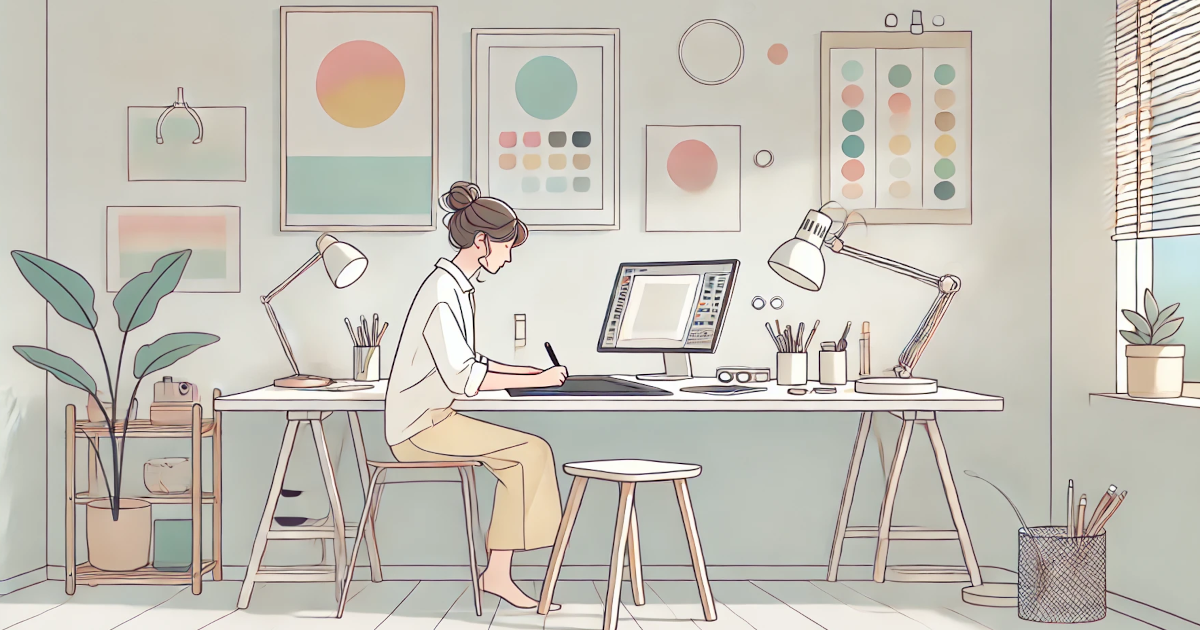
A designer uses visual creativity to communicate ideas and messages effectively. This role requires artistic talent, attention to detail, and an understanding of industry trends. Some people thrive in creative environments, while others may find constant revisions and client demands challenging. Are you suited to be a designer? Take this quiz to assess your aptitude.
A designer creates value for people through visual elements and functionality. The field of design covers a wide range of specialties, including graphic design, product design, web design, UI/UX design, and fashion design, each with its own industry-specific focus and purpose.
However, design is not just about making things look beautiful. A designer must analyze client needs and market demands to develop visually and functionally optimized solutions. This requires not only creativity but also logical thinking and problem-solving skills.
Additionally, designers must stay up to date with evolving technology. In fields like web and UI/UX design, learning new software and design tools is essential. Keeping up with trends and understanding user behavior is also crucial for creating relevant and effective designs.
While much of a designer’s work can be independent, communication with clients and teams is essential. Designers need to understand their clients’ visions and provide appropriate solutions. Ultimately, design is not just about self-expression—it’s about creating meaningful value for others.
The field of design is diverse, and the required skills vary depending on the industry and purpose. Here are some of the most common types of design jobs:
Graphic Designer – Focuses on visual communication for print and digital media, including advertisements, packaging, and logos. They use software like Illustrator and Photoshop to bring branding concepts to life.
Web Designer – Creates the layout and design of websites to ensure a smooth user experience. Knowledge of HTML, CSS, and UI/UX principles is often required to develop visually appealing and functional web interfaces.
UI/UX Designer – Specializes in improving the user experience of apps and web services by conducting data analysis and usability testing. Their goal is to enhance usability and user satisfaction.
Product Designer – Designs physical products such as home appliances and furniture, balancing functionality with aesthetics. This role often requires an understanding of engineering and material design.
Fashion Designer – Creates clothing and accessories, integrating current trends and fabric knowledge to develop stylish and practical designs. Sewing and textile expertise are also essential in this field.
Despite their differences, all design jobs share a common goal—creating value through visual expression.
Becoming a designer requires specialized knowledge and skills. Many designers start by studying at an art university or a design school, where they learn essential skills such as drawing, color theory, design principles, and software operation.
However, it is also possible to learn design independently. With the availability of online courses and books, aspiring designers can develop their skills and build a portfolio to showcase their work. This is especially important in Web and UI/UX design, where practical experience is highly valued. Personal projects and internships can be great ways to gain hands-on experience.
For employment, designers have multiple career paths, including working at design studios, advertising agencies, or as in-house designers for companies. Some choose to work as freelancers, but this requires additional skills in self-promotion, project management, and client communication.
To succeed as a designer, it is crucial to continuously learn and stay updated on industry trends. The field of design evolves rapidly, and keeping up with new tools and techniques is essential. Additionally, strong communication skills are necessary to collaborate effectively with clients and teams.
Although becoming a designer requires dedication and skill development, it is a highly rewarding career for those passionate about creativity and problem-solving.